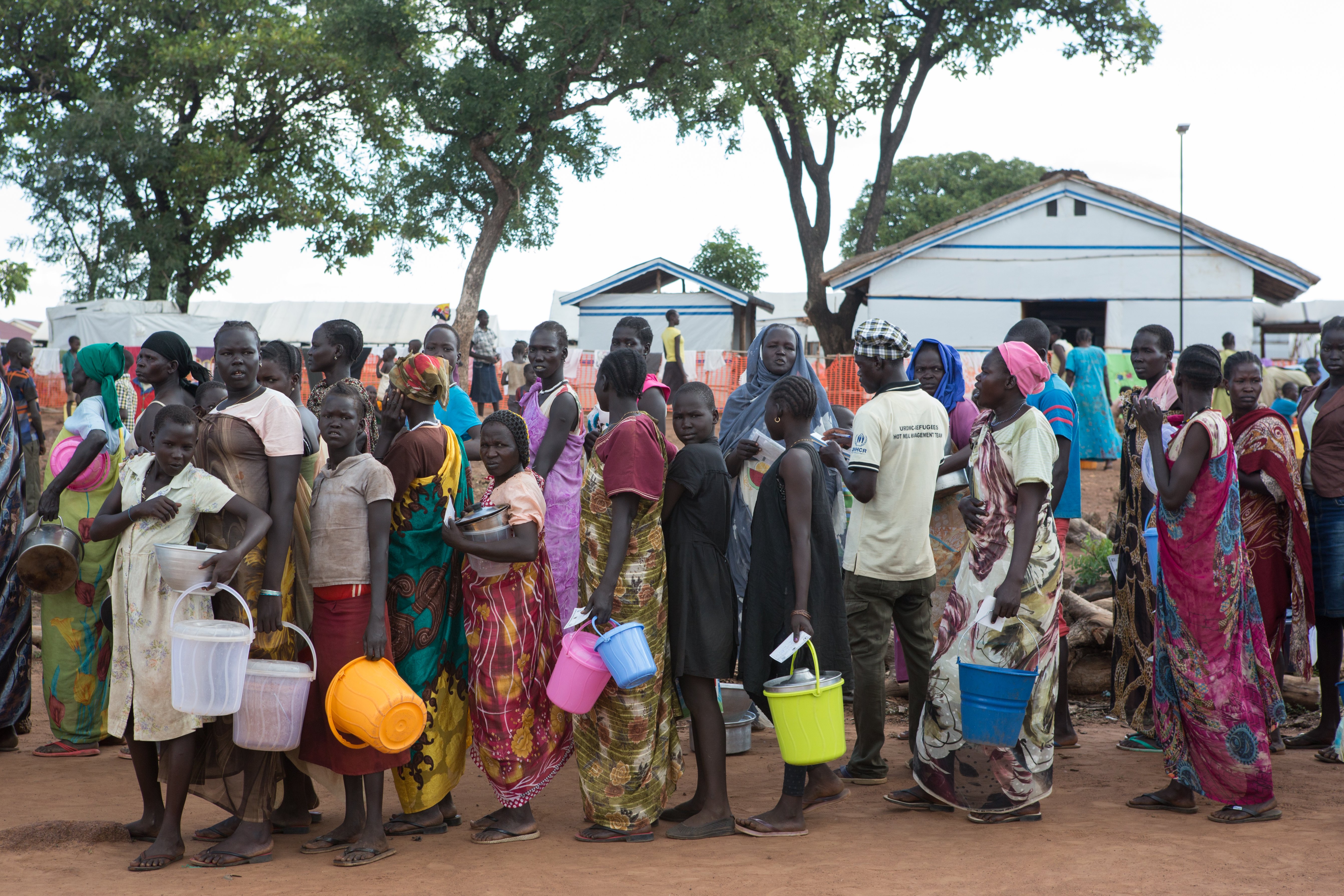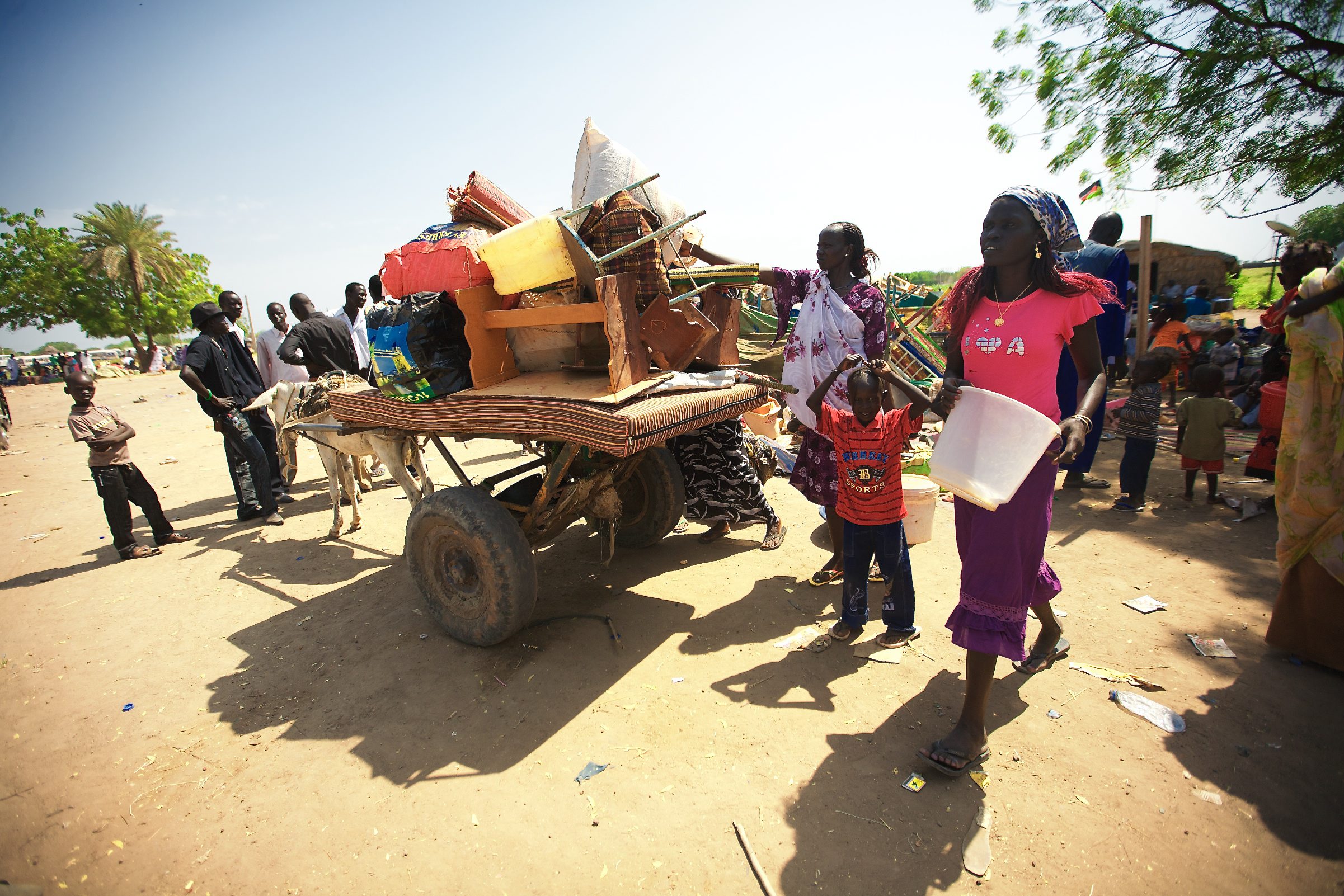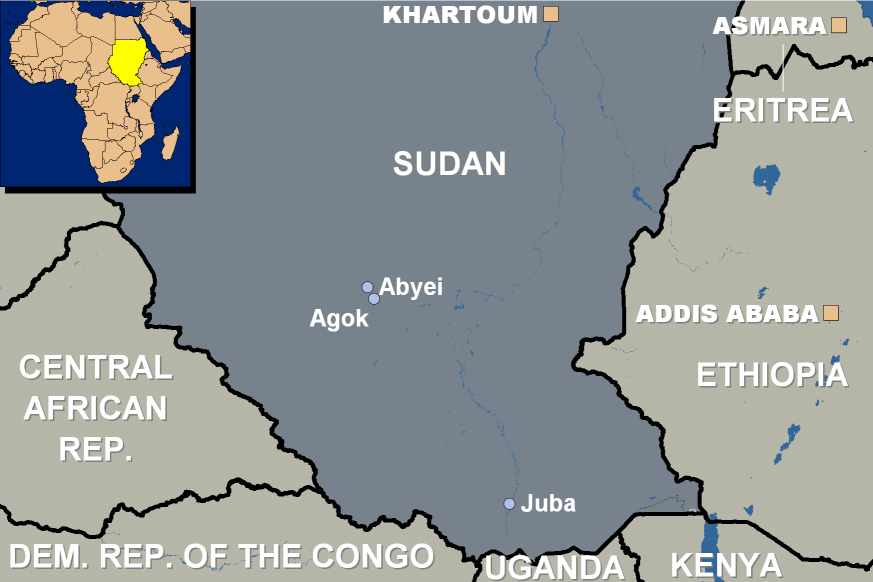Two of Sudan's 'Lost Boys' return home from Cuba
Two of Sudan's 'Lost Boys' return home from Cuba

JUBA, Sudan, November 29 (UNHCR) - Lots of people have heard about the "Lost Boys of Sudan" who ended up in the United States after years on the run in their war-torn country or stuck in refugee camps in surrounding countries. Not many know about the lost boys who ended up in Cuba.
For the first time, two of them have returned home with UNHCR help after more than two decades in the Caribbean island nation. Following weeks of preparations, Michael Bol Deng, 36, and Archangelo Kuech Gur, 37, reached Juba on November 15 after a two-day journey from Havana via Paris and Nairobi.
Met on their arrival by staff of the UN refugee agency and government officials, the two men said they hoped to track down relatives and build a new life in a country whose culture and language they have almost forgotten.
"We wish to welcome you warmly to participate in the development process with the skills you have learned while overseas," William Chan, deputy chairman of the South Sudan Relief and Rehabilitation Commission, told the returning sons.
"After I secure a job, I will then go to trace my family members whom I have not heard from for the last 23 years," said Gur, who hopes to use his doctorate in veterinary medicine to help build South Sudan's animal husbandry sector. Deng is a trained agronomist, a skill sure to be in demand in the predominantly agricultural south.
In the immediate future, both returnees plan to stay in Juba where, remarkably, they soon found long-lost relatives or friends to stay with. Gur said he hoped their example might encourage other skilled Sudanese to return to help rebuild a region devastated by years of war and still lacking vital infrastructure and basic services after three years of peace.
"Peace has come and I see no reason why qualified and well-trained colleagues should remain outside," he said, calling specifically on compatriots in Australia, Canada and the United States "to come back home and face the challenges of development."
He might have added his own cradle of education, Cuba, where hundreds of other lost boys still live. UNHCR hopes that they too might be encouraged to return to South Sudan with their expertise.
It is estimated that more than 20,000 Sudanese boys were orphaned or separated from their homes and families by the conflict in the south between 1984 and 2005. In 2001, the United States took in some 3,600, who were sent to cities around the country.
But Cuba had offered homes to youngsters from South Sudan much earlier. In 1986, the Cuban government agreed to take in a group of 600 teenage boys and provide them with primary, secondary and university education in Havana. Deng and Gur, who fled to Itang Refugee Camp in Ethiopia in 1984, were among this group.
Since the signing of a comprehensive peace agreement in January 2005, UNHCR has supported the return of some 70,000 refugees to South Sudan, while more than 90,000 are believed to have returned on their own. Most have come from neighbouring countries such as Central African Republic, Democratic Republic of the Congo, Egypt, Ethiopia, Kenya and Uganda.
The UN refugee agency is also involved in programmes aimed at easing the reintegration of returnees and encouraging more people to go back, including mine clearance activities and building and rehabilitation of basic facilities such as schools, health centres and boreholes.
By Peter Farajallah and Taylor Garrett in Juba, Sudan






